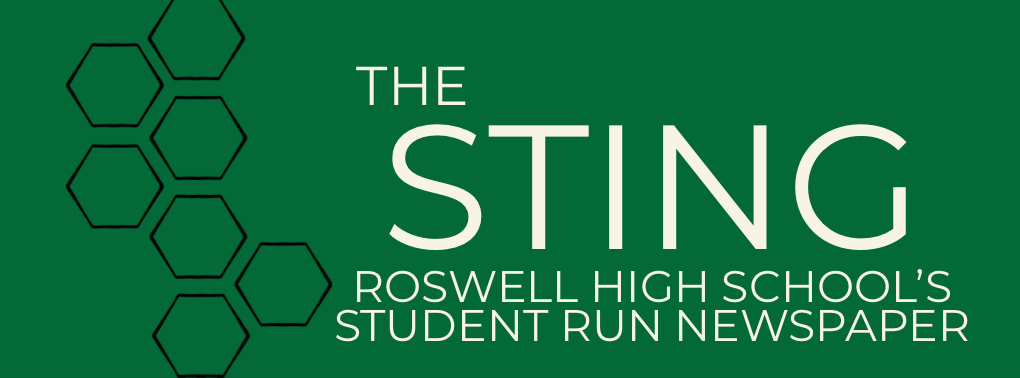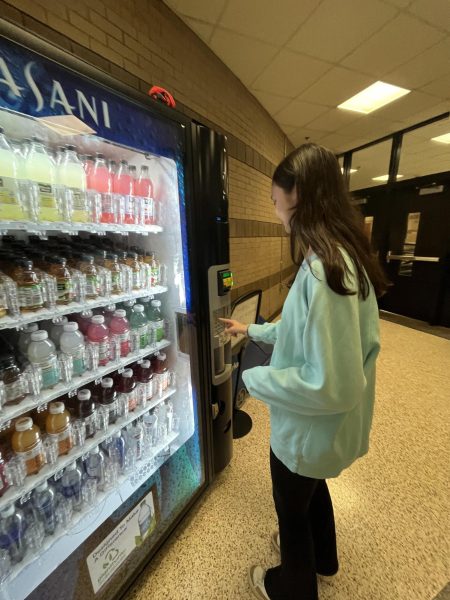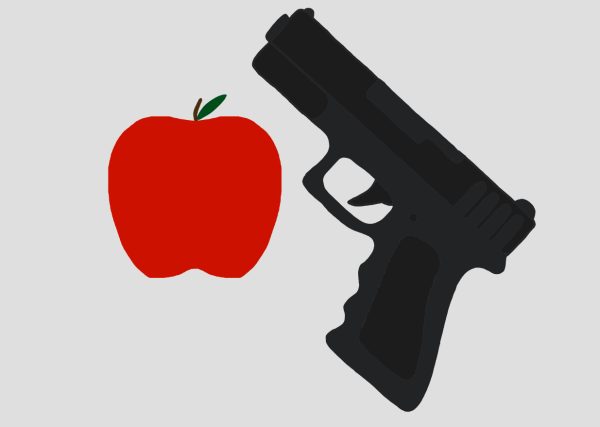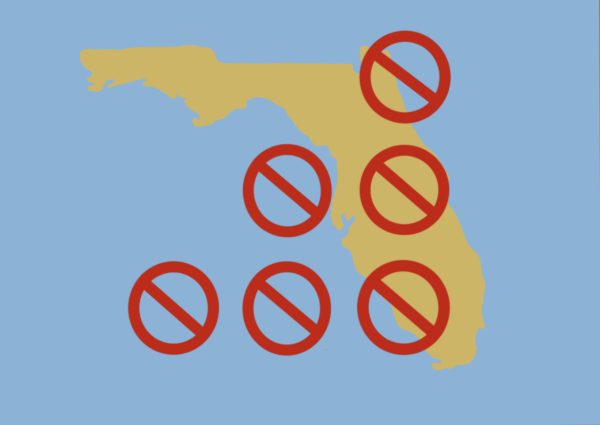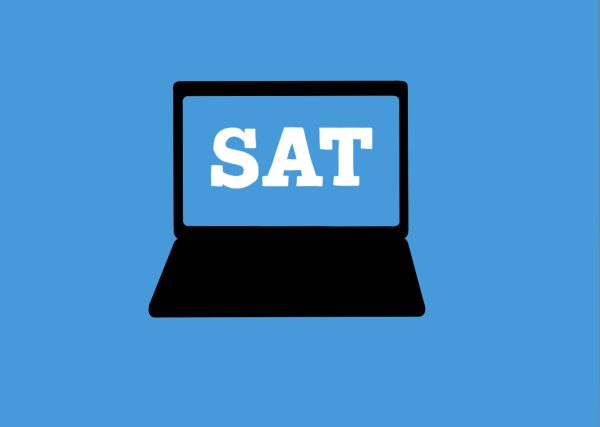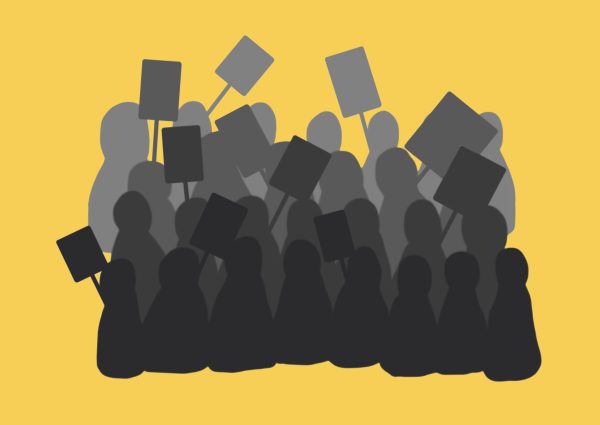Derogatory language echoes through the school halls
October 17, 2019
Everyone is well aware of the United States first amendment constitutional right of free speech. However, this right does not include the protection of hate speech.
While RHS has a general reputation of being a high-standard school, some of our very own hornets seemingly need to brush up on the difference between free speech and hate speech, as defined in the Constitution. Some words have been used so often they are now considered slang, and the use of slurs in school and social life has become acceptable under the thin veil of it supposedly being a joke.
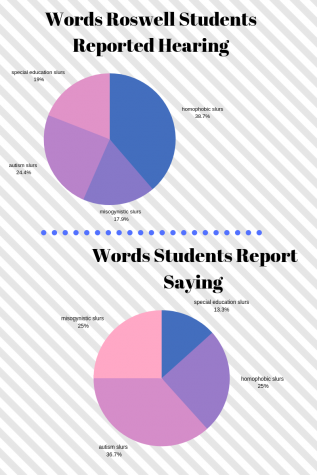
In an anonymous survey of 50 Roswell students and teachers, 100 percent of participants admitted to hearing or speaking insulting words during the school day, the most prominently used being slurs against special needs students (78 percent had heard these remarks, 66 percent reported personally making them). Constantly hearing hurtful words and derogatory language contributes to deteriorating the mental health of students. In the same survey, many students also commented that while they had used many common slurs, they considered it to be in a playful manner. One participant left a comment stating, “The things I said were jokes, banter.”
The issue with this is that no matter the intent behind the language used, students constantly hearing words with extremely negative connotations has two different effects: either desensitizing teens, or letting them know that we go to school in an environment that normalizes words used to degrade other students.
Roswell’s administration does enforce the no hate speech policy to the best of their ability, however it is up to the students to hold their peers accountable and remind everyone to keep their language clean and positive. The most effective way to combat ignorance is with education. Teaching students what the words they use actually mean, the struggles minority groups have been through in regards to derogatory language, and providing other acceptable words are some ways to combat this issue. This could be done through segments on the Friday announcements, The Buzz or through posters in the halls, even just constant reminders through teachers. If students know what they are actually saying, and the hurt some words cause, it may help curb the use of hurtful words being thrown around in our halls.
